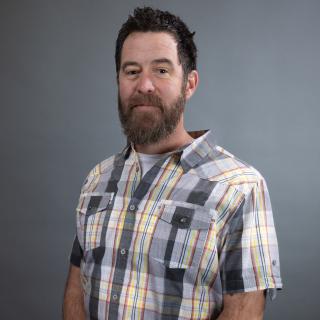My research interests include the exploration of geospatial data to describe and characterize biophysical phenomena and the interactions with humans. My focus is on wildfires, remote sensing, and the relationships with society and a changing climate.
I am currently funded on a National Institute of Health (NIH) project examining the impacts of wildfire smoke on maternal, neonatal, and infant health across the United States for the last 20 years. In my role, I serve as the wildfire and geospatial data expert analyzing the intersections of smoke and populations. Additionally, I am working with colleagues in the School of Public Health, the Renal Research Institute, and Fresenius Medical Care to study wildfire smoke exposure impacts on end-stage kidney disease patients in the United States. We are funded by the Department of Health and Human Services (DHHS) under the Agency for Healthcare Research and Quality (AHRQ) until 2029. This was highlighted in Maryland Today recently.
I am a member of NASA's FireSense Implementation Team tasked with capacity building with U.S. wildland fire management stakeholders to deliver NASA's science and technology to support operational agencies. Four use-cases will be focused on: pre-fire, active fire, post-fire, and air quality.
As part of the XPRIZE-Wildfire challenge team here at UMD, I am leading the detector design team tasked with finding an incipient wildfire in a 1000 sq. km. area. Our team, Crossfire, advanced to the semi-finals in July, 2024.
I am a VIIRS active fire product science team member and served as the Principle Investigator for NOAA's Proving Ground and Risk Reduction (PGRR) project focused on the VIIRS AF products for over 10 years. The goal of this project was to couple capacity building with the wildland fire research and operations communities while simultaneously conducting product evaluation.
Areas of Interest
- Satellite based estimates of fire radiative energy and associated biomass burning emissions
- Fire ecology and consequences of a changing climate
- Land cover and land use change, in particular the interrelationships with climate and sustainability
Degrees
-
Degree TypeBSDegree DetailsEnvironmental Science, SUNY Albany
-
Degree TypeBADegree DetailsGeography, SUNY Albany
-
Degree TypePh.DDegree DetailsGeography, University of Maryland
-
Degree TypeG.S.Degree DetailsGIS Graduate Certificate, University of Maryland
I am interested in the application of geospatial technologies (e.g. remotely sensing, GIS, big data) to investigate the interactive and dynamic nature of landscape ecology and interactions with humans. Incorporating spatial analysis tools along with in situ measurements. I am particularly interested in examining wildland fire impacts on human health and seek to understand how patterns of wildfire and land use may vary with climate change and anthropogenic influence. My current research projects include:
- NASA, “Generation of NASA Sentinel-3 Fire Products to Provide Terra MODIS Continuity Sponsor”
- DHHS, “Climate change, forest fires, and patients with end-stage kidney disease: A national scale vulnerability assessment”
- NASA, FireSense Implementation Team
- NIH, Infectious Diseases, Reproductive Health, Asthma and Pulmonary Conditions Study Section, “Wildfires and Infant Health”
-
Chair - College of Behavioral and Social Science (BSOS) Sustainability Committee (2016 - )
-
UMD Senator (2016 – 2019)
-
UMD Senate Executive Committee member (2016-2017)
-
Faculty advisor for the BSOS Sustainability Task Force (STF) in 2017-18
-
ProfessionalResearch Faculty Chair
Former Students
-
Jiaying HeShuimu Scholar & Postdoctoral Research Fellow
-
Hyeonjin SongClimate Scientist, First Street
-
Emily ColonPhD Candidate, UMD Department of Anthropology


